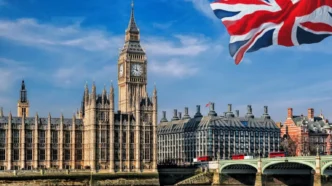The UK’s latest step toward deeper European AI cooperation—the AI Factory Antenna initiative has been welcomed by researchers and tech leaders alike. But behind the headlines, this isn’t just a win for access to supercomputing resources. It may signal a strategic shift in Britain’s post-Brexit role in global AI leadership.
Foreign Secretary David Lammy and Prime Minister Keir Starmer’s government are quietly reshaping the UK’s tech diplomacy. Amid criticism on other domestic fronts, this AI initiative reflects serious progress on an international scale—bridging fractured EU ties and laying the groundwork for a new AI alliance across the continent.
Brexit dealt a heavy blow to the UK’s scientific and research networks, severing access to EU programmes and creating barriers to talent mobility. The departure from Horizon Europe was especially damaging, cutting the UK off from collaborative research infrastructure that once underpinned much of its innovation.
But things are changing. The UK has now rejoined Horizon, and discussions are warming on re-engaging with Erasmus and possibly restoring freedom of movement for young people. These aren’t just bureaucratic fixes—they’re symbolic steps that rebuild trust and reopen critical collaboration channels across borders.
For the AI sector, that renewed cooperation is vital. Access to continental supercomputing power, shared infrastructure, and cross-border research partnerships could determine whether the UK remains a global leader—or falls behind.
AI, Europe, and the Moment of Convergence
The global AI race is no longer just about models and algorithms—it’s about regulatory power, political values, and infrastructure capacity. Europe has leaned into an ethics-first, regulation-driven approach, putting safety and transparency at the core of its AI governance. The UK, on the other hand, has focused on innovation, leaning into a “pro-tech” narrative to attract startups and researchers.
Now, however, both sides are recognizing that convergence is inevitable. The scale of investment needed, the complexity of cross-border challenges like copyright, and the risks of AI misuse demand multinational collaboration. And with the US tightening immigration and adopting a more unpredictable tech stance under Trump, Europe has a rare window to attract the world’s top AI minds.
The UK’s mix of research talent, open innovation policies, and reconnected EU ties gives it a unique edge—if it can act fast.
The AI Factory Antenna, once established, will serve as the UK’s connection to Europe’s supercomputing network. That’s more than just server space. It means access to immense computing power for AI model training, real-time simulations, and large-scale data analysis—capabilities that startups and researchers can’t achieve alone.
Politically, the move is just as significant. It reflects a pivot from isolation toward partnership, and signals the UK’s ambition to be more than just a solo innovator—it wants to be a hub within a broader European ecosystem.
Chris Williams, a partner at Clyde & Co, put it plainly: “It’s another sign that the UK is looking to collaborate with its European neighbours. The government clearly wants the UK at the centre of global technological innovation.”
Building an AI Superpower, the European Way
The scale needed to compete with the US and China in AI is enormous. Without shared resources and aligned values, most nations would struggle to keep up. But the UK and Europe, with their combined strengths, might just have the answer.
While the US dominates in scale and capital, and China accelerates through state-led development, the UK-EU alliance brings something different: a fusion of ethical regulation, innovation, academic depth, and democratic governance.
This isn’t just about infrastructure—it’s about soft power. By shaping how AI is developed, governed, and used, the UK and EU can jointly define the future of safe, trusted, and transformative AI.
The AI Factory Antenna may not be grabbing headlines like billion-dollar data centres or ChatGPT breakthroughs, but its long-term impact could be just as profound. It marks a moment where the UK begins to reassert itself—not by going it alone, but by partnering smartly.
If Europe is to emerge as a true AI superpower, this might be the moment it started—in a quiet, collaborative, and deeply strategic move that puts shared progress above politics.













